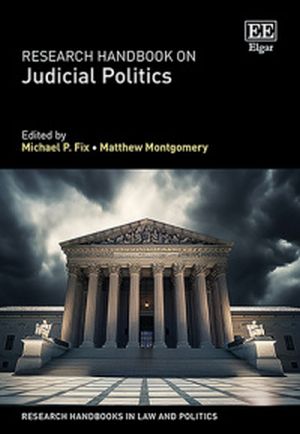We will be closed from 5pm Thursday 17th April for the Easter Bank Holidays, re-opening at 8.30am on Tuesday 22nd April. Any orders placed during this period will be processed when we re-open.

This timely Research Handbook offers a comprehensive examination of judicial politics, both in the US and across the globe. Taking a broad view of the judiciary in all levels of the court, it examines the present state of the field and raises new questions for future scholarly exploration.
Expert authors critically analyse what the current literature tells us about important phenomena related to judicial politics, while simultaneously expanding the scope of that knowledge through original empirical research. Chapters cover the process of judicial decision-making in different types of courts, before discussing the electoral dimensions of judicial appointments, as well as vertical and horizontal constraints on judicial behaviour. They also address extrajudicial communications, public opinion and legitimacy, before concluding with an examination of methodological issues in judicial politics research.
Accessibly written, the Research Handbook on Judicial Politics is a vital resource for graduate and undergraduate students of law, political science and public policy. It is also beneficial to practitioners in law and law related fields who are interested in gaining insight into the processes and structure of the judiciary.